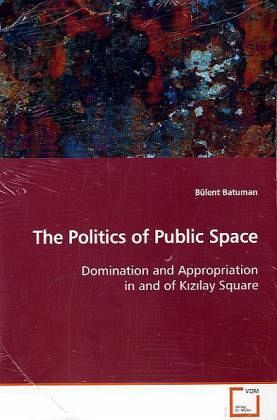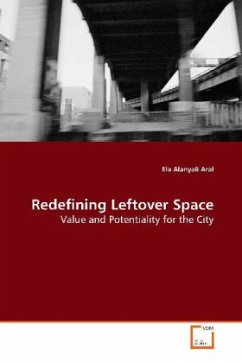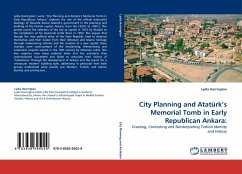
The Politics of Public Space
Domination and Appropriation in and of K z lay Square
Versandkostenfrei!
Versandfertig in 6-10 Tagen
39,99 €
inkl. MwSt.

PAYBACK Punkte
20 °P sammeln!
Analyzing the social history of K z lay Square inAnkara, the capital city of Turkey, this bookinvestigates the relation between public space andpolitics. Drawing on the work of Henri Lefebvre,Batuman argues that the political participation ofthe social groups in public sphere becomes possibleonly through spatial appropriation. Yet, the socialproduction of public space is always mediated by therules and regulations dictated to the space by thepower of the state and the economic influence ofcapital. The clash between the forces of domination(of the state and capital) and appropriation (ofmargina...
Analyzing the social history of K z lay Square in
Ankara, the capital city of Turkey, this book
investigates the relation between public space and
politics. Drawing on the work of Henri Lefebvre,
Batuman argues that the political participation of
the social groups in public sphere becomes possible
only through spatial appropriation. Yet, the social
production of public space is always mediated by the
rules and regulations dictated to the space by the
power of the state and the economic influence of
capital. The clash between the forces of domination
(of the state and capital) and appropriation (of
marginal groups seeking participation) produce the
public space through a constant struggle for
hegemony. The book investigates this process through
the particular case of the making of Ankara into the
capital of the newly born Turkish Republic. The
social history of K z lay Square throughout the 20th
century presents a spatial history of the public
sphere as a terrain of hegemonic struggle
complementing a top-down modernization process.
Ankara, the capital city of Turkey, this book
investigates the relation between public space and
politics. Drawing on the work of Henri Lefebvre,
Batuman argues that the political participation of
the social groups in public sphere becomes possible
only through spatial appropriation. Yet, the social
production of public space is always mediated by the
rules and regulations dictated to the space by the
power of the state and the economic influence of
capital. The clash between the forces of domination
(of the state and capital) and appropriation (of
marginal groups seeking participation) produce the
public space through a constant struggle for
hegemony. The book investigates this process through
the particular case of the making of Ankara into the
capital of the newly born Turkish Republic. The
social history of K z lay Square throughout the 20th
century presents a spatial history of the public
sphere as a terrain of hegemonic struggle
complementing a top-down modernization process.












